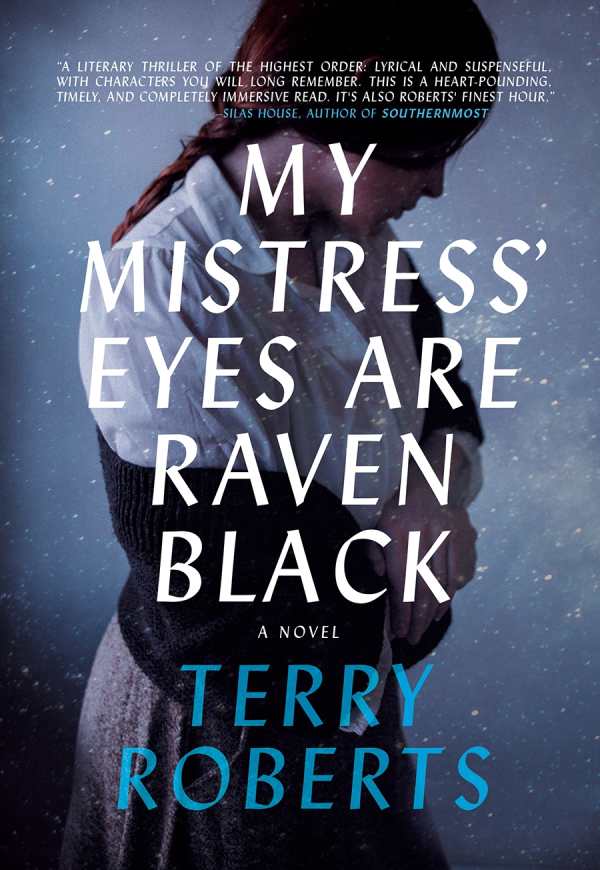My Mistress' Eyes Are Raven Black
In Terry Roberts’s ominous historical novel My Mistress’ Eyes Are Raven Black, Ellis Island’s immigration policies take a bleak post-war turn.
In 1920, an Irish immigrant vanishes after being sent to the Isolation Ward. Suspecting foul play, the Department of Justice recruits Stephen, a scarred North Carolinian, to investigate. Upon installing himself in the empty Psychopathic Care Unit, he meets Lucy, a tough-minded nurse who’s probing an unusual rise in hospital deaths. They uncover a seamy murder conspiracy, and fall in love with each other in the process. Indeed, between their gruesome late-night discoveries, their tender romance is a welcome reprieve. Both have tragic backgrounds that are detailed with enough ambiguity to make them interesting, while also hinting at how their current case has personal implications for them when it comes to race.
Stephen uses clever needling and conversational mirroring as tactics to pull information out of those he encounters. These include a manipulative, charismatic person and hospital workers. Ellis Island, the famous immigration inspection station whose architectural grandeur masked a harsh system of classifying people according to controversial criteria, is an enticing, eerie setting for his story.
In the book, foreboding prejudice and virulent ideas about who counts as American are established via excerpts from the period writings of eugenicist Madison Grant and nationalist and white supremacist Lothorp Stoddard; these evoke recent political rhetoric, too. The same is true of Stephen and Lucy’s encounters with people who express religious dogma. But Stephen’s dialogue serves as an antidote to the hatred he encounters in others.
My Mistress’ Eyes Are Raven Black is a suspenseful and original historical novel—an amalgam of twisted psychologies and cloak-and-dagger nostalgia with a teasing, passionate romance.
Reviewed by
Karen Rigby
Disclosure: This article is not an endorsement, but a review. The publisher of this book provided free copies of the book to have their book reviewed by a professional reviewer. No fee was paid by the publisher for this review. Foreword Reviews only recommends books that we love. Foreword Magazine, Inc. is disclosing this in accordance with the Federal Trade Commission’s 16 CFR, Part 255.

